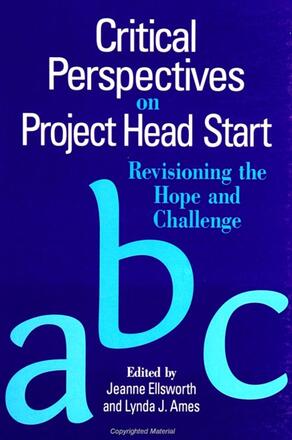
Critical Perspectives on Project Head Start
Revisioning the Hope and Challenge
Alternative formats available from:
Considers how Project Head Start, the federally funded preschool program, has operated (sometimes effectively and comfortably, sometimes not) with families, in communities, and with other institutions. An important look at the intersections of poverty, social programs, and education.
Description
This book offers critical perspectives on the complex dynamics of politics, class, gender, power, race, and ethnicity in Project Head Start, past and present. Moving beyond the literature on Head Start's effects on children's achievement, this volume considers how the program has operated—sometimes effectively and comfortably, sometimes not—with families, in communities, and with other institutions. Contributors address historical background, parent involvement and governance, cultural diversity, and relationships with other institutions. The research reported is rich with the voices of parents, community members, and staff, and is complemented by first-person chapters written by participants themselves. Head Start's appeal and its reputation for success are both championed and critically questioned in this book, with an eye toward where Head Start might be going, where it should be going, and how we can better understand poverty, social programs, and education.
Jeanne Ellsworth is Associate Professor, Center for Educational Studies and Services and Lynda J. Ames is Associate Professor, Department of Sociology, both at Plattsburgh State University of New York. Their previous book is Women Reformed, Women Empowered: Rural Mothers and the Endangered Promise of Head Start.
Reviews
"The book shows how Head Start has changed from a social action movement into an 'education' program for parents, usually mothers, and children. It provides important insights into the inner workings of programs, illuminating both ways in which programs can serve—and can fail to serve—families from diverse backgrounds. Literally thousands of studies have been done on Head Start, but the majority are in the same mode. This book offers something new. The authors are to be commended for addressing issues close to the ground, with candor, compassion, and concern. They show us the human face of Head Start in all its diversity, complexity, and contradiction. " — Sally Lubeck, The University of Michigan
"The book deconstructs aspects of Head Start which have needed a closer examination for some time—it moves the discourse about Head Start from an essentializing, common-sense version of a popular and monolithic federal anti-poverty program to a discourse which is contradiction-ridden and which begins to unravel some of the complexities of the enactment of this popular program. " — Beth Blue Swadener, Kent State University